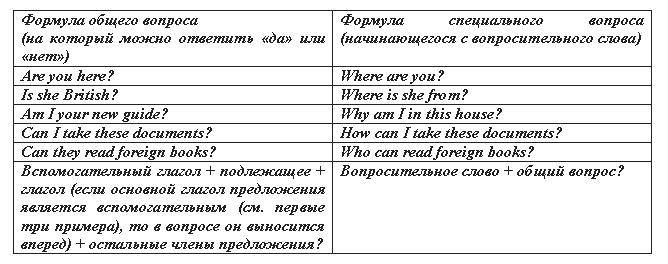Language focus 1
The verb «can»
Глагол «мочь, уметь»
I can speak French. – Я умею говорить по-французски.
Can you help me? – Вы можете мне помочь?
They can’t (can not) read English. – Они не умеют читать по-английски.
Where can I buy this book? – Где я могу купить эту книгу?
1. Write the questions and give negative answers.
Напишите вопросы к данным предложениям и дайте отрицательные ответы на них.
Example: She can play tennis.
Can she play tennis? She can’t play tennis.
1. My children can speak Spanish. ......................................................................
2. My wife can cook very well. ......................................................................
3. They can help us with these documents..............................................................
4. I can tell you about the office. ..................................................................
5. She can look at him all the time. ..................................................................
6. He can come home at 7 o’clock. ..................................................................
7. They can walk in this park. ..................................................................
2. There is one mistake in each sentence. Find and correct it.
Найдите ошибку в каждом из данных предложений.
1. I can’t drive a car, but my brother is can. ................................
2. Where I can meet my friend? ................................
3. Can they to tell me the way to the park? ................................
4. Your sister can play the piano? ................................
5. We cann’t come home now. ................................
6. When can see this play? ................................
7. I can work at night, but my wife can. ................................
8. He can’t to read this boring book. ................................
3. Write 10 questions with «can» using the verbs in the Box.
Напишите 10 вопросов, используя глагол «can» и глаголы из таблицы.
To listen, to help, to walk, to relax, to meet, to work, to buy, to drive, to finish, to speak.
4. Translate the sentences into English.
Переведите предложения на английский язык.
1. Вы умеете водить машину? ........................................................
2. Моя жена умеет говорить на трех иностранных языках. ........................................................
3. Мои дети не могут читать длинные скучные книги. ........................................................
4. Где я могу купить билет? ........................................................
5. Мы не можем поехать в Египет. Это очень дорого. ........................................................
6. Я не умею готовить хорошо, но мой муж умеет. ........................................................
7. Что мы можем увидеть в этом театре? ........................................................
8. Мой муж не может ходить на работу каждый день. ........................................................
9. Я не могу слушать эту музыку. ........................................................
Language focus 2
Can you / Could you?
Выражение просьбы с помощью Can you / Could you
Просьба, начинающаяся с «Could you» звучит более вежливо. Сравните: Can you help me? – Вы можете мне помочь? и Could you help me? – Не могли бы Вы мне помочь?
5. Write the full question with «Could».
Напишите полный вопрос, используя «Could».
1. help me to study ..............................................................................
2. play tennis with me ..............................................................................
3. watch this play ..............................................................................
4. have lunch with me ..............................................................................
5. give me your E-mail ..............................................................................
6. buy a cake for us ..............................................................................
7. live in this flat ..............................................................................
6. Write in a suitable question.
Напишите подходящий по смыслу вопрос
.
Language focus 3
Question-words.
Вопросительные слова.
What – Что – What can you see in the room? Что ты можешь увидеть в комнате?
What – Какой – What is your surname? Какая твоя фамилия?
When – Когда – When can you meet my friend? Когда ты можешь встретиться с моим другом?
Why – Почему – Why is he here? Почему он здесь?
Where – Где – Where are my chairs? Где мои стулья?
Who – Кто – Who is that man? Кто тот мужчина?
With whom – С кем – With whom can you come? С кем ты можешь прийти?
How – Как – How are you? Как вы поживаете?
Whose – Чей – Whose is this office? Чей это офис?
7. Read the sentences and translate them. Underline the auxiliary verb.
Прочитайте предложения и переведите их. Подчеркните вспомогательный глагол.
1. Where can I buy jeans?.....................................................................................
2. Are these chairs new? ......................................................................................
3. How is your little sister? ...................................................................................
4. With whom is she at the theatre? ........................................................................
5. Are these expensive maps? ................................................................................
6. Where can they have dinner? ............................................................................
7. Who is that man? .........................................................................................
8. When is he in the USA? ....................................................................................
9. Is that our map? ...........................................................................................
10. Who can relax in this room? ...........................................................................
11. What is your favourite game? .........................................................................
12. What can I have for lunch? .............................................................................
8. Complete the questions.
Закончите вопросительные предложения.
1. Can they.........................................................?
2. Where can I......................................................?
3. Who can..........................................................?
4. Is that............................................................?
5. Where are.......................................................?
6. How can I.......................................................?
7. When can they..................................................?
8. With whom is...................................................?
9. Ask one General and one Special question.
Задайте один общий и один специальный вопрос.
Example: My boss can speak three foreign languages.
Can my boss speak three foreign languages?
Where can my boss speak three foreign languages?
1. The doctor can help me.
2. She is in Moscow now.
3. These places are lovely.
4. I can walk in the park.
5. They can listen to music.
6. I am at home at night.
7. This playroom is large.
8. My wife can cook very well.
9. My brother is married.
10. Those are cheap flats.
10. These are the answers. What are the questions?
Напишите вопросы к данным ответам.
1. No, they can’t buy these newspapers.
2. Yes, these are our maps.
3. No, I can’t drive a bus.
4. He is in the shop.
5. I can come home at nine.
6. My friends are fine.
7. I can.







